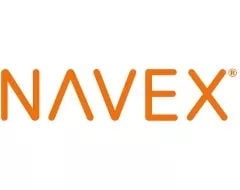It's four months since the European Commission made protecting whistleblowers a legal obligation, so what is now happening with the EU Whistleblower Protection Directive in the different countries? At WhistleB, we are receiving this very question from customers and others who want to start to prepare their organisations to comply. It is of particular concern for multi-national organisations, who will have to comply in many countries in a short amount of time.
By 17th December 2021, all EU member countries will have to meet the minimum standards provided by the Directive on the protection of persons reporting on breaches of Union law (EU Whistleblower Protection Directive). There is much work to do, with currently less than half of all EU countries having whistleblower protection legislation in place. In the same timeframe, tens of thousands of organisations will need to set up new, or revise their existing, whistleblowing systems and policies.
It is still too early to know exactly what will happen country by country. In this article though, we provide: the current legal landscape in some of the member states; the latest trends in whistleblowing that might have a bearing on what the members states will do; and examples of where the minimum standards of the Directive give plenty of scope for varied local interpretation. This is as close as we can come to describing the current progress of the EU Whistleblower Protection Directive in the different countries.
Current legal landscape
Each EU Member State now has the task of transposing the framework provided by the EU Whistleblower Protection Directive into national laws. But what is the starting point for the different countries?
Currently, where whistleblower protection exists on a national level, it generally applies to a restricted number of sectors, for example financial services. Early movers regarding the codification of whistleblower protection were the United Kingdom with its Public Interest Disclosure Act 1998, Ireland with the Protected Disclosures Act 2014 and The Netherlands with the Dutch House for Whistleblowers Act that entered into force in mid-2016. Examples of legislation on whistleblower protection adopted in later years are France's Loi Sapin II from mid-2017 and Italy's Law No. 179/2017 that came into force at the end of 2017. In mid-2019, Croatia adopted its Law on the Protection of Persons reporting Irregularities, and Sweden has its whistleblower protection law since 2016.
Although some countries in the EU already have whistleblower protection laws in place, more often than not, the EU Whistleblower Protection Directive imposes a broader scope, requiring adjustments to be made to the existing laws.
Trends in whistleblower protection
Macro trends are interesting for companies to understand as they indicate current attitudes to whistleblowing, i.e. the prevailing context for the interpretation of the EU Whistleblower Protection Directive in the different countries. Comparing recent whistleblower protection legislation both on a national and international level, we see a general tendency for new laws to:
- Broaden the scope of individuals eligible for whistleblower protection;
- Enable protection of the identity of whistleblowers through confidentiality;
- Improve access to compensation or other remedies as a result of victimisation following a whistleblower disclosure;
- Broaden the scope of affected organisations;
- Provide information about the protection and support available to whistleblowers.
In a nutshell, it would be fair to say that regulation is on the rise around the world, generally becoming wider in scope and stricter in enforcement.
Minimum standards for whistleblower protection in the EU
What is important for companies to keep in mind is that the EU Whistleblower Protection Directive sets only minimum standards to ensure effective whistleblower protection. Regarding internal whistleblowing and follow-up, the Directive requires organisations to appoint a person or persons with the right competence to manage reports professionally. It requires processes that include prompt response, diligent follow-up and timely feedback. It requires a secure system to handle the reports, prevent access to non-authorised staff members and retain the confidentiality of both the whistleblower and anybody mentioned in the report, throughout the entire case. It also requires organisations to inform employees clearly about their rights and options for reporting externally to competent authorities.
As we mentioned above though, these requirements are only a starting point. In a number of key areas, the EU countries have quite some freedom in how they transpose the EU Directive into their local laws. Three we would like to raise are:
1. What whistleblowers can report on and be protected
Whistleblowers will be able to sound the alarm on a range of issues and remain protected from retaliation when they do so. The Directive protects whistleblowers if they report breaches of law in accordance with the legal framework provided. It includes a wide array of European Union law that whistleblowers may report on, including anti-money laundering and corporate taxation, data protection, protection of the Union's financial interests, food and product safety and environmental protection and nuclear safety.
When it comes to the transposition of the EU Whistleblower Directive in the different countries, lawmakers are encouraged to establish comprehensive frameworks for whistleblower protection based on the same principles, and are free to extend these rules to other areas. This is where WhistleB would like to see countries, and failing that organisations themselves, broadening the scope in one particular area.
At the EU level, the new directive does not protect people that report harassment, discrimination, bullying and the like. However, harassment and other workplace environment related issues clearly touch many workplaces daily. According to WhistleB's Customer Survey more than 20% of all the reports that our customers receive are about harassment or discrimination. This is a number that has risen markedly over recent years.
2. Anonymous whistleblowing
The EU Whistleblower Protection Directive does not affect the power of EU countries to decide whether private or public entities and competent authorities need to accept and follow up on anonymous whistleblowing messages. Some countries, for example Spain and Portugal, have traditionally taken a restrictive stance on anonymous whistleblowing.
WhistleB has always advocated for anonymous whistleblowing though, both for the protection of whistleblowers and for companies to gain more value from their whistleblower channels. The stress of whistleblowing and the fear of retaliation will prevent people reporting, unless they can remain anonymous. Thus, unless they allow anonymous reporting, organisations will not receive the reports and the information they need to act on damage prevention at an early stage.
Given that potential whistleblowers will also be protected if they report concerns externally, including to the media, WhistleB believes that companies should do all they can to encourage whistleblowers to report internally, where the matter can be dealt with speedily. Thus, irrespective of how the Directive becomes transposed in the different countries, organisations would gain by allowing anonymous whistleblowing.
3. Penalties for failure to comply
The current lack of sanctions in many countries for not complying with whistleblower protection legislation results in a de facto hostile environment for whistleblowers. The EU Whistleblower Protection Directive requires that penalties be imposed against those who attempt to hinder reporting, retaliate against whistleblowers, attempt to bring proceedings or who reveal the identity of the whistleblower. Any threats or attempts to retaliate against whistleblowers are also prohibited.
However, EU countries enjoy a great level of discretion, as the EU Whistleblower Protection Directive does not set minimum penalties, nor does it determine whether sanctions should be based on civil or penal law.
As leading providers of whistleblowing solutions in Europe, WhistleB will continue to closely monitor what happens with the EU Whistleblower Protection Directive in the different countries.
The content of this article is intended to provide a general guide to the subject matter. Specialist advice should be sought about your specific circumstances.

